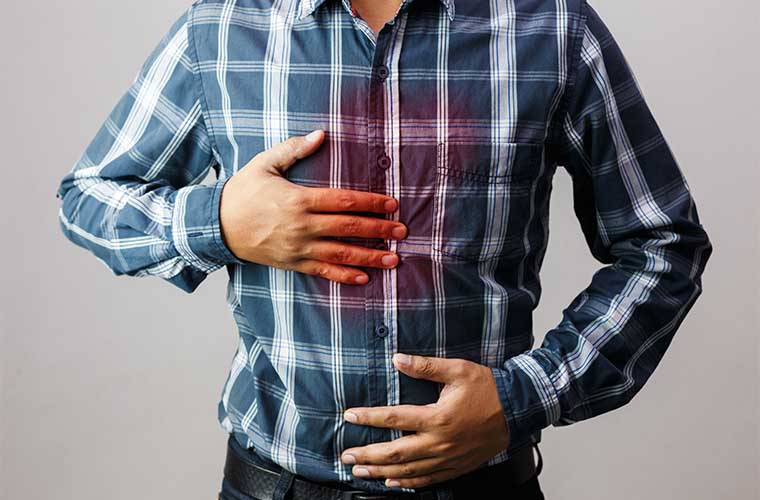Avoid Overeating During the Holidays

With so many holidays coming up, this is prime time to bite off a little more than you should chew. You can prevent excessive heartburn or gastroesophageal reflux disease (GERD) by following these tips from BayCare experts to avoid overeating.
“People are overeating or eating things that are not necessarily good for them,” said Abhitabh Patil, MD, a gastroenterologist and co-medical directors of the St. Anthony’s Hospital Heartburn and Swallowing Center. “It’s important not to overeat which can definitely lead to extreme cases of heartburn or GERD.”
The St. Anthony’s Heartburn and Swallowing Center, which opened about two years ago, helps patients who are suffering with GERD and other swallowing disorders. The center’s team of specialists uses the latest diagnostic technologies and minimally invasive surgical therapies.
The week of Nov. 23 is GERD Awareness Week and it’s a perfect time to find a solution for GERD. Dr. Patil and Jamii St. Julien, MD, a surgeon who is also the center’s co-medical director, suggest a few tips that can help anyone avoid overeating during the holidays:
- Small plates lead to small portions. Instead of using a dinner plate, grab a salad plate or a saucer to control the amount of food you eat.
- Reduce intake of high fat foods. According to NIH, high fat foods can cause the lower esophageal sphincter to relax and permit more stomach acid into the esophagus. Avoiding those foods can help you avoid heartburn.
- Avoid sugary foods. Don’t tempt yourself by bringing sugary snacks into your home. Make a list of foods before going to the grocery store and stick to it.
- Reduce stress. We know 2020 has been a challenging year as we all try to stay safe and avoid COVID-19. That makes it even more important to try to find a way to relax. Read a book, watch a movie, listen to your favorite music – whatever helps you avoid stress-fueled overeating.
- Get moving. If you do eat too much, then put on your mask and take a walk outside to help with digestion. Although it’s tempting to take a nap, movement will help.
- Eat early. Eating a meal just prior to bedtime can really make GERD symptoms much worse. Try to avoid eating within three hours of going to sleep.
In addition to Dr. Patil, physicians with the center who offer specialized testing and advanced endoscopic treatments are gastroenterologists Neil Bajwa, MD; Chetan Desai, MD; Tejinder Glamour, MD; Milan Patel, MD; and Mihir Patel, MD. Dr. St. Julien and surgeon Kevin Huguet, MD, offer minimally invasive surgery solutions. Drs. Patil and St. Julien serve as the center’s medical directors.
Dr. St. Julien, the center’s other medical director, also stressed the importance of paying attention to eating habits – especially around the holidays. “Behavioral modification is always the first line of defense against GERD, and often makes a substantial difference in patients’ symptoms,” he said. “Surgical outcomes for reflux are truly fantastic, but surgery is not always necessary if patients take certain steps on their own.”
One of the surgical solutions that is offered is the LINX©, a small ring of magnetic beads that is placed around the esophagus just above the stomach. It prevents regurgitation of gastric acid into the esophagus.
For more information on St. Anthony’s Heartburn and Swallowing Center, click here.
